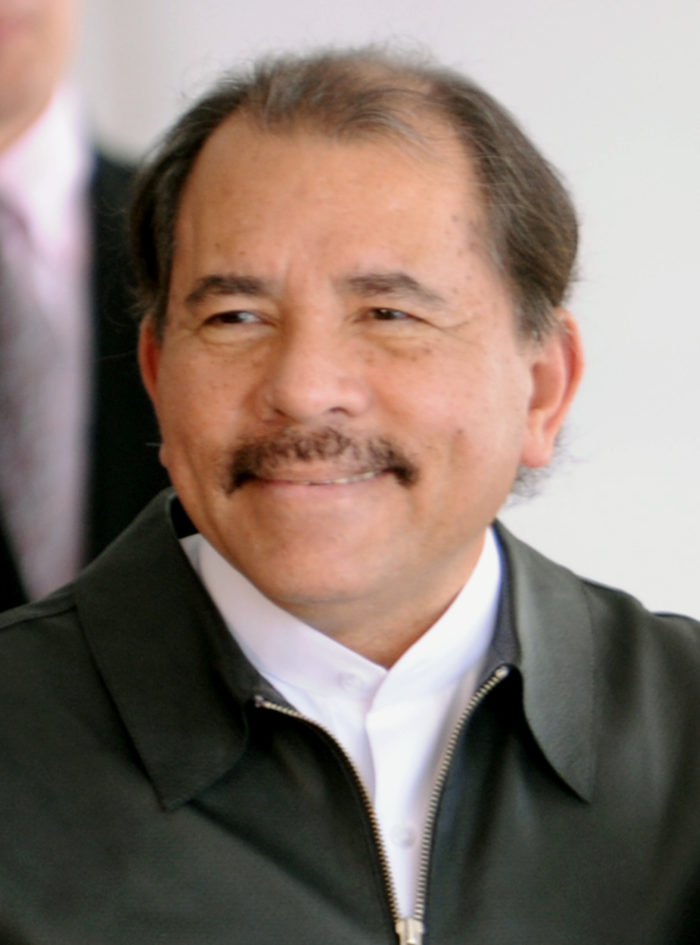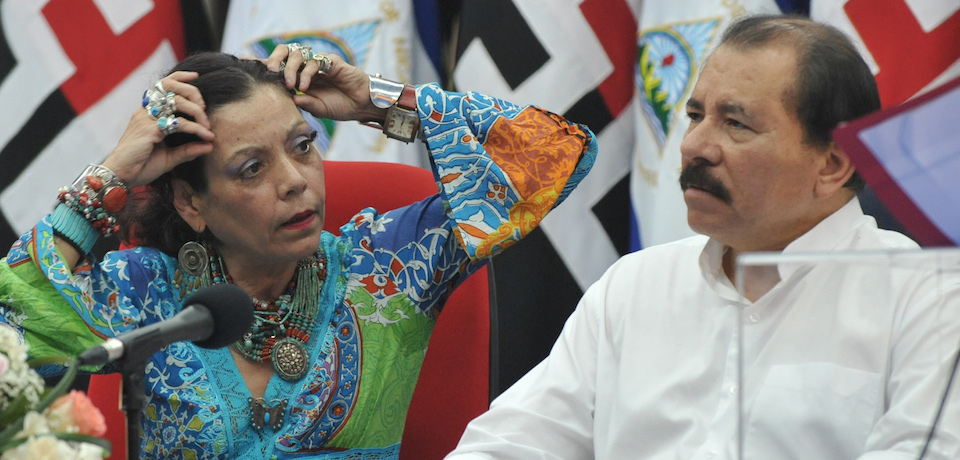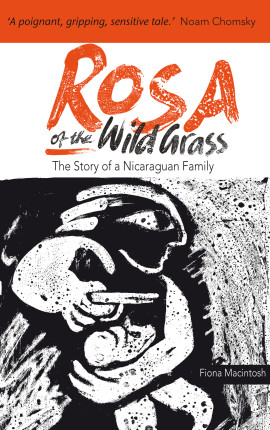The result of the Sunday 7 November presidential and congressional elections in Nicaragua is a foregone conclusion. Current president Daniel Ortega and his vice-president wife Rosario Murillo are certain to win a landslide victory, and the Sandinistas will continue to dominate the National Assembly.
President Ortega insists he is continuing the Sandinista revolution that first brought him to power after a popular insurrection in 1979.
In the runup to the 2021 elections, which could see Ortega re-elected for a fourth consecutive term, he has been doing all he can to ensure victory. Opposition candidates, including Cristiana Chamorro, daughter of former president Violeta Chamorro, have been placed under house arrest or taken to undisclosed destinations, charged with money laundering, or ‘conspiring against Nicaraguan society’.
Several of the historical Sandinista leaders including Dora Tellez have been jailed. Others have fled Nicaragua. In June, an arrest warrant was issued against the 1970s Sandinista vice-president Sergio Ramírez, who left the country for exile in Spain, commenting that he had been forced to live there under the Somoza dictatorship in the 1960s, and now felt that ‘history is repeating itself’.
‘Nobody knows if they’re going to be the next one [detained by police], nobody knows whose house is going to be raided,’ said Ramírez.
More than 20 Nicaraguan NGOs and 15 international aid organisations have been suspended, accused of using foreign funds to undermine the regime. Commenting on the shut-down of Oxfam in Nicaragua in August 2021, its regional director Simon Ticehurst said:
‘A vibrant civil society sector is synonymous with democratic life, essential for the respect of human rights, a kind of antidote against any abuse of power.’
The depth of international feeling was evident in an open letter to the Nicaraguan government by supporters of the Sandinista cause from 1979 to 1990:
‘The Ortega-Murillo government in no way represents the values, principles and goals of the Sandinista revolution we once admired, and it betrays the memory of tens of thousands of Nicaraguans who died for a democratic Nicaragua where its people freely and fairly choose who should lead them.’
The United States and the European Union have imposed sanctions on the bank accounts and travel of high-ranking members of the Ortega government, and have denounced the upcoming elections as a ‘sham’.

75 year-old Ortega, who has been largely invisible in the closing weeks of the election campaign, has responded that this international criticism is unwarranted interference in Nicaragua’s internal affairs, and yet another attempt to derail the Sandinista revolution.
He relies heavily on memories of the US-sponsored Contra war against the Sandinista government he led in the 1970s. This conflict meant the Sandinistas were unable to carry out many of their radical reform projects, and was one of the main reasons for their electoral defeat in 1979.
Ortega returned to the presidency in 2007. At first his administration made great efforts to alleviate poverty, improve education, and support the agricultural sector in the countryside, the bedrock of support for the Sandinista cause.
Ortega was re-elected in 2011 but when he stood again for a third time in 2016 there were widespread accusations that the ballot had been rigged. He was also accused of becoming increasingly authoritarian (he soon pushed through legislation abolishing limits on presidential terms) and of keeping power within his family and a small group of allies.
By then memories of the Contra war had faded – almost two thirds of Nicaragua’s six and a half million population was born after 1990 – and it was students and other young people most of whom have known only Ortega governments, who in 2018 led widespread protests against the regime.
These protests were violently repressed by the Sandinista police and paramilitary groups backing the government. More than 300 people died, and many hundreds more were jailed. Ortega dismissed the protests as a coup attempt sponsored by the US, and ever since has continued to have people arrested on trumped-up charges.
This and the increasing number of arrests of opposition leaders in the months prior to these elections mean that parties and groups opposed to Ortega have found it hard to organise. Publications supporting them have been closed down, and their rallies disrupted.
Many of the opposition groups are boycotting this weekend’s elections, meaning Ortega and his wife are almost certain of victory. Their tactics of clamping down on political opposition and independent civil society will keep them in power, but for how much longer?
Although published in 2016, LAB’s book Rosa of the Wildgrass – the Story of a Nicaraguan Family, by Fiona Macintosh, is still one of the best aids to understanding both the Sandinista revolution and its aftermath. Rosa, its protagonist, goes in 2008 to talk to former FSLN Comandante Dora Maria Téllez, at the time on hunger strike to support the right of her party, the MRS, to political representation. Rosa tells her: ‘I’m a Sandinista and always will be, and … that means I can’t support President Ortega; I can’t be a Danielista. He’s shifted way too far from what the revolution stood for. Power and ambition have taken him somewhere that’s beyond any moral principle.’ Dora María, along with other political opponents of Daniel Ortega, was arrested in June 2021.
Main image: Daniel Ortega & Rosario Murillo. Image: Nicaragua Actual


